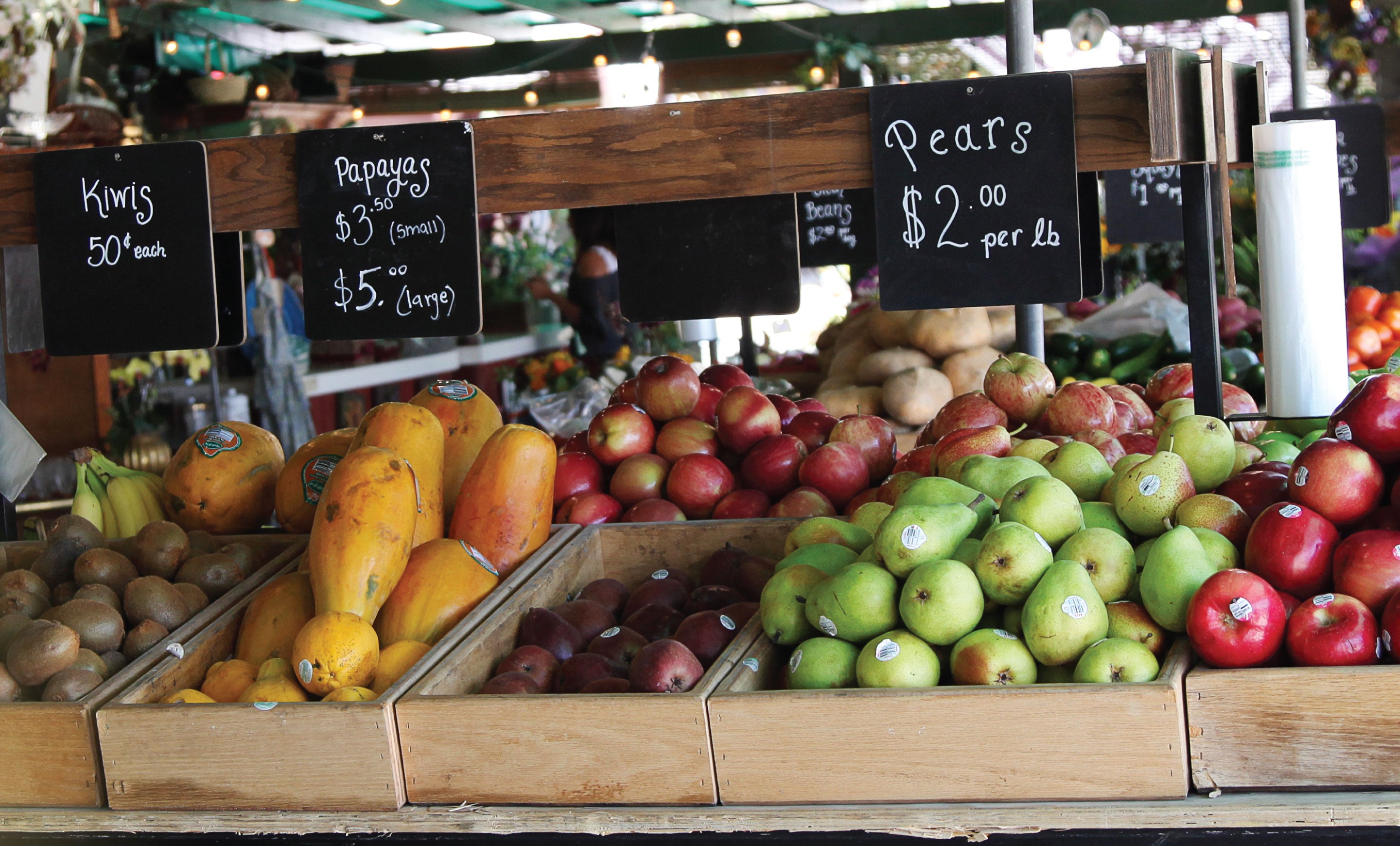Cuando vamos al supermercado, los alimentos con certificación orgánica sin duda llaman la atención. Como consumidores, tenemos la sensación de que los alimentos y productos orgánicos son más saludables para nosotros y para el medio ambiente. También sabemos que los productos orgánicos tendrán un precio adicional.
¿Vale la pena el precio? ¿Qué importancia tiene consumir y comprar alimentos y productos orgánicos en lugar de los convencionales?
Aprenda qué significa una certificación orgánica y a qué alimentos debe prestar especial atención al decidir si elegir productos orgánicos o no.
¿Qué significa cuando un producto es “orgánico”?
Existen muchas certificaciones orgánicas en todo el mundo, y las definiciones y regulaciones exactas varían ligeramente según la entidad certificadora y la región. Sin embargo, una de las más reconocidas, particularmente en los Estados Unidos, es la etiqueta verde USDA Organic.
El Departamento de Agricultura de los Estados Unidos es la entidad que regula y certifica los productos que buscan ser etiquetados como orgánicos. Existen numerosas descripciones de los estándares que los productores y sus productos deben cumplir. Sin embargo, para los consumidores, la mayor parte de esa información no es práctica.
El Folleto para el consumidor del USDA define “orgánico” de la siguiente manera:
-
Los alimentos orgánicos son producidos por agricultores que enfatizan el uso de recursos renovables y la conservación del suelo y el agua para mejorar la calidad ambiental para las generaciones futuras.
-
La carne, las aves, los huevos y los productos lácteos orgánicos provienen de animales a los que no se les administran antibióticos ni hormonas de crecimiento.
-
Los alimentos orgánicos se producen sin utilizar la mayoría de los pesticidas convencionales, fertilizantes hechos con ingredientes sintéticos o lodos de depuradora, bioingeniería o radiación ionizante.
-
Antes de que un producto pueda ser etiquetado como "orgánico", un certificador aprobado por el gobierno inspecciona la granja donde se cultiva el alimento para asegurarse de que el agricultor esté siguiendo todas las reglas necesarias para cumplir con los estándares orgánicos del USDA.
-
El uso de ingeniería genética, u organismos genéticamente modificados (OGM ), está prohibido en los productos orgánicos.
-
Las empresas que manipulan o procesan alimentos orgánicos antes de que lleguen a su supermercado o restaurante local también deben estar certificadas.
¿Cuáles son los beneficios para la salud de consumir productos orgánicos?
Algunos de los beneficios para la salud de los alimentos orgánicos, o más bien la prevención de problemas de salud causados por componentes de las técnicas de producción y agricultura convencionales, son cuestionados por productores comerciales y escépticos. Sin embargo,un informe preparado para el Parlamento Europeo ayuda a responder algunas de las preguntas sobre los alimentos orgánicos.
La mayoría de los beneficios para la salud se basan en la eliminación de los pesticidas utilizados en la agricultura convencional, ya que siguen presentes incluso después de lavar la fruta o verdura. La agricultura orgánica evita por completo los pesticidas.
En una entrevista con el doctor Philippe Grandjean , de la Escuela de Salud Pública Chan de Harvard, coautor del informe, se menciona que, si bien distintas comisiones defienden los límites actuales de pesticidas, las regulaciones se basan en estudios con animales, y el cuerpo y el cerebro humanos son mucho más complejos que los de otros animales. Parece que el impacto de los pesticidas en la salud y el desarrollo cerebral es lo más preocupante.
Otras evidencias muestran que evitar el uso de antibióticos en carnes y aves de corral también es un beneficio clave para la salud. El uso excesivo de antibióticos puede generar resistencia a los mismos , lo que hace que sea cada vez más difícil proteger nuestro cuerpo contra las infecciones y recuperarnos de ellas.
Las ventajas adicionales de elegir alimentos orgánicos incluyen tener potencialmente un mayor contenido de algunos nutrientes y una menor concentración de metales pesados como el cadmio.
¿Cuáles son los beneficios ambientales de los alimentos orgánicos?
-
Sostenibilidad a largo plazo: Produce alimentos estableciendo un equilibrio ecológico para evitar la fertilidad del suelo o problemas de plagas.
-
Mejora la formación y estructura del suelo con prácticas de mejora del suelo.
-
Mantiene el agua limpia y libre de fertilizantes sintéticos y pesticidas.
-
Ayuda a frenar el cambio climático: no necesita grandes cantidades de combustibles fósiles para producirse y aumenta el carbono en el suelo, mitigando la contribución de la agricultura al cambio climático.
-
Promueve la biodiversidad: uso de semillas tradicionales y adaptadas, y evitación de semillas transgénicas.
¿A qué alimentos debo prestar atención?
Cada año desde 2014, el EWG ha analizado los datos sobre pesticidas publicados por el USDA para determinar las clasificaciones de los productos agrícolas frescos más populares que son los “más sucios” y los “más limpios” en términos de residuos de pesticidas.
La “Docena Sucia”, o los 12 productos con mayor concentración de pesticidas, son:
-
Fresas
-
Espinaca
-
Nectarinas
-
Manzanas
-
Melocotones
-
Peras
-
Guindas
-
Uvas
-
Apio
-
Tomates
-
Pimientos dulces
-
Papas

Estos son los alimentos que debes comprar orgánicos, para evitar la concentración de pesticidas.
Los “quince limpios” son aquellos alimentos que tienen la menor concentración de residuos de pesticidas y, por lo tanto, es menos importante comprarlos orgánicos. Entre ellos se incluyen:
-
Maíz dulce
-
Aguacates
-
Piñas
-
Repollo
-
Cebollas
-
Guisantes dulces congelados
-
Papayas
-
Espárragos
-
Mangos
-
Berenjena
-
Melón dulce
-
Kiwi
-
Cantalupo
-
Coliflor

¿Qué importancia tiene comer alimentos orgánicos? En resumen, depende del alimento. Si le preocupa la resistencia a los antibióticos, elija carnes orgánicas. Si está convencido de que los residuos de pesticidas podrían estar afectando su salud, asegúrese de comprar opciones orgánicas de la “docena sucia”.
Informarse con información creíble y las investigaciones más actualizadas, como en este artículo, es clave para tomar las mejores decisiones para su salud.






